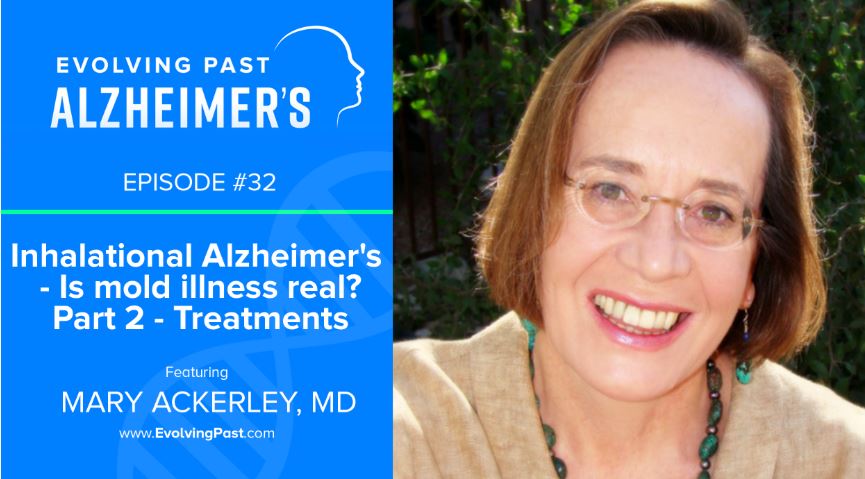Dr. Nate Bergman, Chief Scientific Wellness Officer for Kemper Cognitive Wellness, is absolutely convinced that Alzheimer’s and other brain diseases are generally treatable and reversible. Early translational evidence supports this belief. The Evolving Past Alzheimer’s podcast is committed to bringing you the highest caliber information about what you can do to identify, prevent, and treat Alzheimer’s disease. The show’s secondary goal is to use Alzheimer’s and cognition as a platform to explore consciousness and the human experience in “life’s second half.” This show brings you conversations with experts around the world that are leading the charge in treatment and prevention of Alzheimer’s and other brain disease.
In episode 31, Dr. Bergman welcomes guest Dr. Mary Ackerley, MD. Dr. Ackerly is a Harvard and Johns Hopkins trained board certified psychiatrist. She holds active medical licenses in Arizona and Florida. Mary is also a co-founder of ISEAI, the International Society of Environmentally Acquired Illness. Society members are dedicated to researching and quantifying symptoms and treatment approaches from biotoxin mediated inflammatory illness. Her practice My Passion 4 Health is located in Arizona.
About this Episode
Dr. Ackerley is probably most well known for her internet article entitled
“Brain on Fire” (
related YouTube) which is a summary of the neuropsychiatric implications of biotoxin illness.
She was also a co-author on an
article with a
previous guest, Dr. Dale Bredesen called,
Reversal of Cognitive Decline in Alzheimer’s Disease. This was sort of an exposé of a novel concept called, Inhalational Alzheimer’s. Dr. Ackerly and I discuss what is meant by Inhalational Alzheimer’s. It focuses on the fact that toxins – like mycotoxins and others – come in through the nose to infiltrate the brain.
Dr. Ackerley describes the first cases she saw with cognitive impairment and the symptoms involved. We also discuss the first cognitive symptoms she noticed specifically related to mold and biotoxin exposures. To help make a diagnosis of mold-related cognitive decline – Dr. Ackerley uses:
- a person’s story (patient history) and his/her symptoms
- inflammatory labs such as TGFB-1, MMP9, Complement 4a, VEGF
- urine mycotoxin testing
- volumetric MRI (see previous episode 6 with Dr. Cyrus Raji episode)
- the NeuroReader Triage brain report
- thalamus and amygdala enlargement
- basal ganglia atrophy
Listen to the complete episode now.
Disclaimer
Please note, this show, like all shows on the podcast, is not meant to be medical advice. It is not intended to diagnose or treat any health condition. Please see your personal health care provider for diagnosis and treatment.
Dr. Nate Bergman is seeing clients from across the country in Cleveland, Ohio. An initial, in-person consultation is necessary to establish care, and follow up appointments may be conducted virtually. Call 216/337-1400 to schedule.





